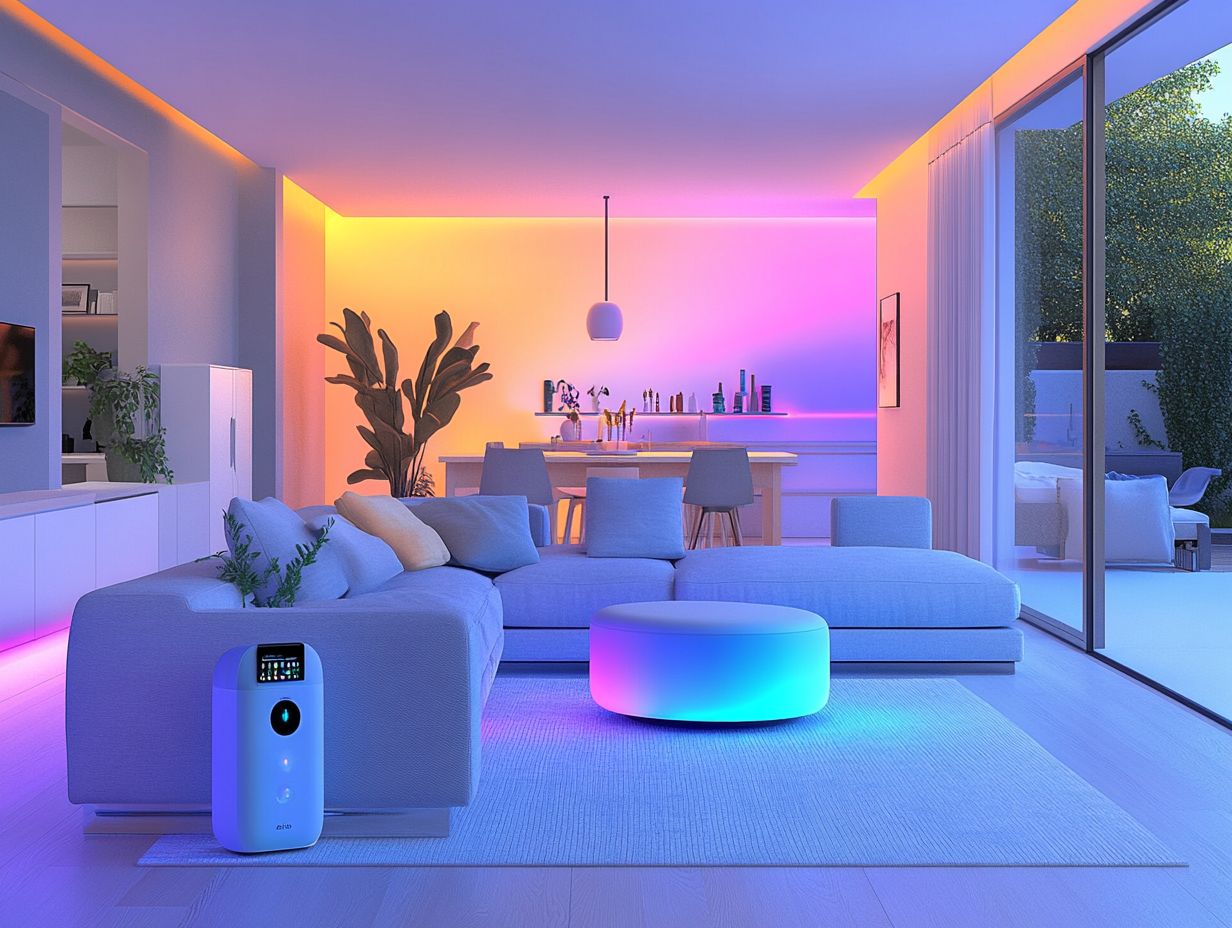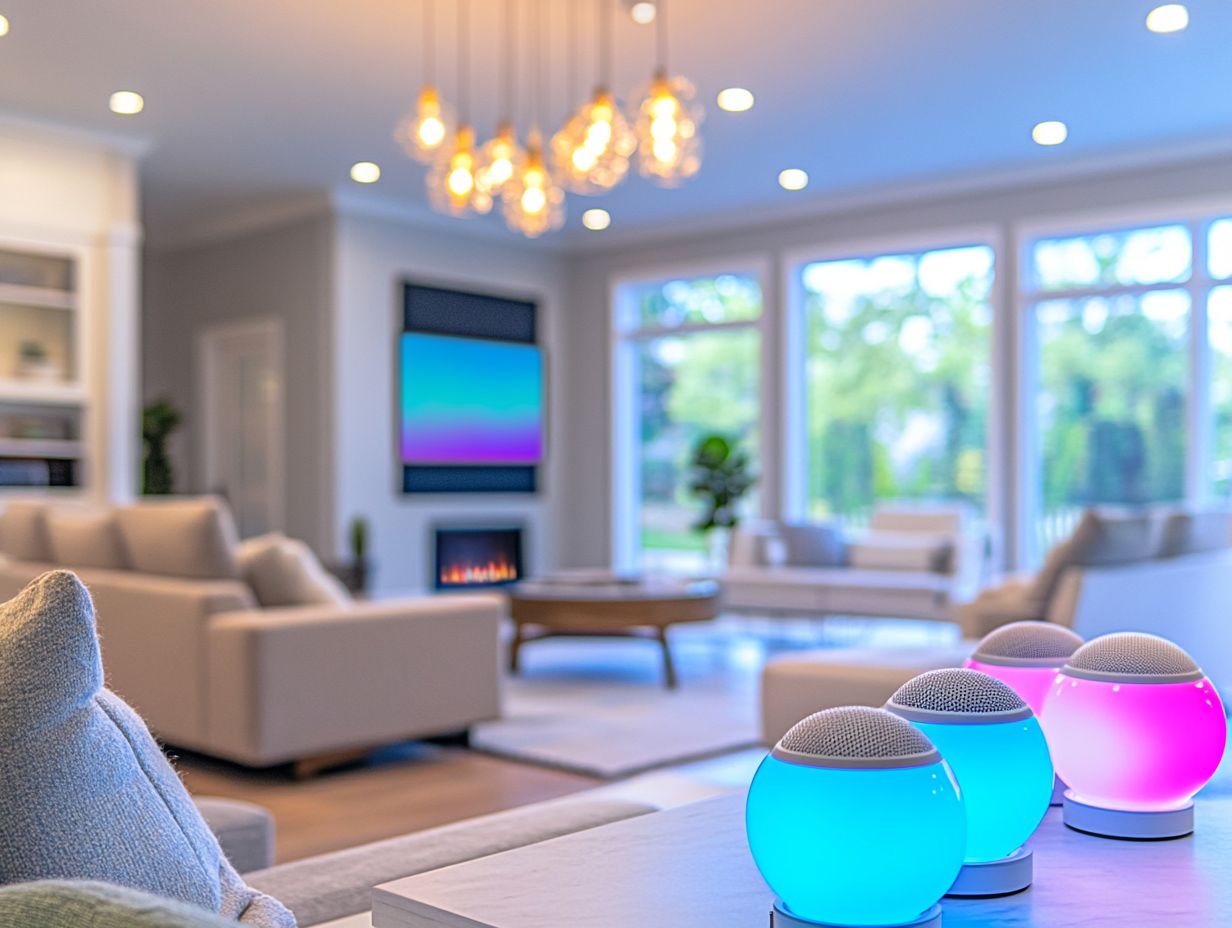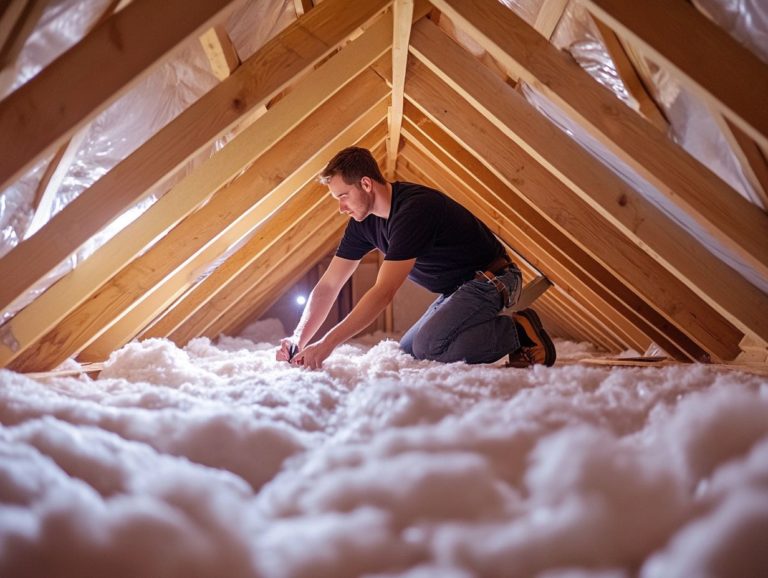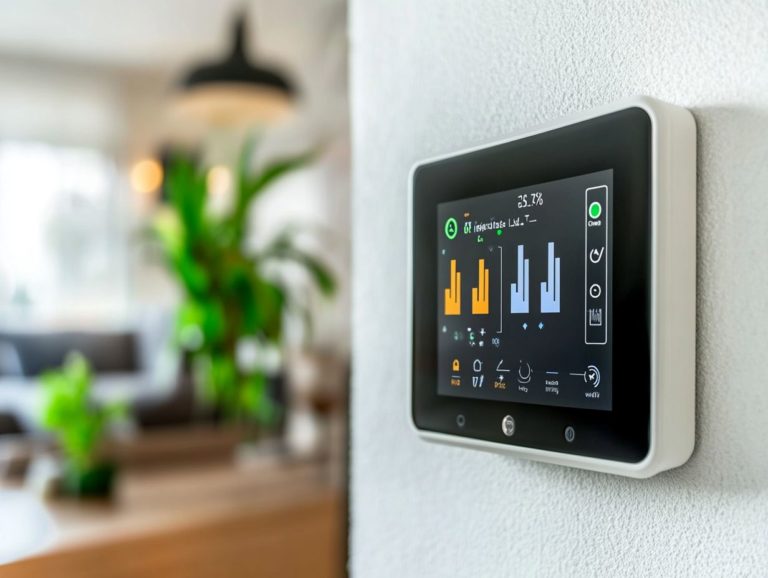What are the Latest Trends in Smart Homes?
Smart homes are redefining your lifestyle, turning everyday tasks into seamless experiences that prioritize convenience and efficiency.
As technology evolves, so do the features that enhance your living space from intuitive voice control to innovative energy-saving solutions. This article delves into the latest trends in smart home technology, exploring how integration and sustainability are transforming your environment.
You ll also find essential considerations regarding security and costs, and a glimpse into the future of smart homes. Discover how these exciting advancements can truly revolutionize your daily life today!
Contents
- Key Takeaways:
- Current Trends in Smart Home Technology
- The Future of Smart Homes
- Considerations Before Implementing Smart Home Technology
- Frequently Asked Questions
- Curious about the latest trends in smart homes?
- How can voice assistants enhance the experience of a smart home?
- What is the significance of smart appliances in a smart home?
- How have smart security systems evolved in recent years?
- What are some energy-efficient technologies used in smart homes?
- Are there any concerns regarding privacy and security in smart homes?
Key Takeaways:

Voice control and integration are becoming increasingly prevalent in smart homes, allowing for hands-free operation and seamless interaction of various devices and systems.
Energy efficiency and sustainability are key considerations in the latest trends of smart homes. Technologies such as smart thermostats, which adjust temperature settings automatically, and energy monitoring systems are popular choices for eco-conscious homeowners.
While smart homes offer convenience and advanced features, concerns about security and privacy still exist. It is important for homeowners to carefully consider these factors before implementing smart home technology.
Defining Smart Homes and Their Purpose
Smart homes signify a remarkable evolution in residential living, where technology effortlessly melds with your daily life to elevate comfort, security, and efficiency.
By embracing a smart ecosystem, your home can be outfitted with an impressive array of features that prioritize convenience and management. For instance, smart thermostats automatically adjust temperature settings based on your preferences and schedule, ensuring optimal energy usage.
Automated door locks enhance your security by allowing you to monitor and control access remotely. Meanwhile, wellness gadgets like smart air purifiers and fitness trackers foster a healthier living environment, encouraging you to adopt a more active lifestyle.
With these advancements, technology not only streamlines your daily routines but also crafts a harmonious living space that adapts to your unique needs and preferences.
Current Trends in Smart Home Technology
The landscape of smart home technology is evolving rapidly, with various trends shaping the future of your living environment.
Innovations like AI integration and voice control are becoming more commonplace, enabling you to manage smart appliances and systems with ease. This transformation boosts energy efficiency, strengthens your home security, and offers unparalleled convenience through interconnected devices, known as the Internet of Things.
Voice Control and Integration
Voice control has transformed how you interact with smart home devices, serving as a backbone of home automation.
Systems like Google Home and Amazon Alexa empower you to command your smart appliances with simple verbal instructions, creating a seamless experience that enhances convenience and connectivity in your daily life.
This technology enables you to operate lights, thermostats, and security systems remotely. It also integrates with advanced AI, making your smart home even more intuitive.
For example, you can effortlessly adjust the lighting by saying, “Turn on the living room lights,” or set the thermostat with a voice command, ensuring a comfortable environment without lifting a finger.
Smart refrigerators can remind you when groceries are running low, while smart speakers can play your favorite tunes or answer questions all completely hands-free.
By simplifying these tasks, voice control enriches your overall experience, making home management more efficient and enjoyable.
Explore the world of smart home technology further. Consider checking out products and services that enhance smart home living!
Energy Efficiency and Sustainability

Energy efficiency stands as a cornerstone in the realm of smart home technology, giving you the power to optimize your energy consumption while minimizing your environmental footprint.
By embracing devices like smart thermostats and smart lighting systems, you can unlock significant energy savings. This helps cultivate a more sustainable living environment.
Energy-efficient appliances, such as refrigerators and washing machines, not only help lower your utility bills and also play a crucial role in reducing your carbon footprint.
With the integration of these technologies, you gain the ability to monitor your energy use in real-time. This allows you to make informed choices about your consumption habits.
As awareness of sustainability continues to grow, the potential for advancements in smart home innovations is truly exciting. Expect improvements in energy storage solutions and enhanced home automation systems that learn from your behavior.
These advancements promise to further diminish energy waste, highlighting both the economic benefits for your household and the positive impact on our planet for generations to come.
Security and Privacy Concerns
While smart homes undoubtedly enhance convenience, they also come with a set of security and privacy concerns that you need to address. Devices like automated door locks and surveillance systems rely heavily on connectivity, which raises important questions about how your data is protected.
The vulnerabilities of these connected devices can make them prime targets for cybercriminals. Without robust security measures in place, you might find yourself at risk of data breaches opening the door to identity theft or misuse of your devices.
You must take action now to safeguard your data! To mitigate these risks, implement strong encryption standards and ensure that all your network connections are secure.
Regularly updating your device firmware, using unique passwords, and considering a dedicated network for your smart devices can be game-changers. By taking these proactive steps, you can enjoy the convenience of smart technology while effectively safeguarding your personal data and maintaining your privacy.
The Future of Smart Homes
The future of smart homes is on the brink of extraordinary advancements, propelled by cutting-edge Artificial Intelligence (AI) integration and the increasing connectivity of smart devices.
As this intelligent ecosystem evolves, expect to see enhanced functionality, improved connectivity, and a heightened focus on wellness gadgets designed to monitor and promote healthy living.
Predictions and Potential Advancements
Predictions for the future of smart homes indicate a landscape defined by AI integration and home automation technologies. Expect innovations like smarter appliances and enhanced connectivity to boost energy efficiency and transform how you interact with your living space.
As machine learning algorithms become more refined, these devices will adapt to your individual preferences and routines. Imagine a refrigerator that tracks your food inventory and suggests recipes based on what you have, helping you cut down on food waste!
Central systems will learn to optimize energy usage by determining the best times to power various appliances. This will lower your utility bills and promote sustainability, fundamentally altering your concept of home life in the years to come.
Considerations Before Implementing Smart Home Technology

Before you dive into the realm of smart home technology, it’s crucial to weigh several factors, including implementation costs and device compatibility.
Understanding the financial implications and ensuring that your IoT devices can effortlessly mesh with your home automation system will set the stage for a smooth and successful transition.
Ready to explore smart home technology further? Start implementing changes today!
Costs and Compatibility
Knowing the costs of smart home technology can empower you to make the best choices! Understanding the costs associated with smart appliances and Internet of Things (IoT) devices is essential for homeowners like you who are aiming to elevate your living spaces. When budgeting for these smart appliances, consider not just the initial investment but also the potential long-term savings in energy efficiency.
The price of individual devices can vary widely, from affordable options to premium choices. Installation costs can also fluctuate significantly based on the complexity of your setup and whether you choose to enlist professional help.
Remember to consider ongoing expenses like subscription fees for cloud services and electricity costs from these interconnected devices.
Compatibility issues can pose challenges, and navigating these hurdles is crucial for maintaining a seamless experience. To sidestep integration headaches, research compatible systems or select devices that adhere to standardized communication protocols.
This approach will enhance your user experience and broaden your options for creating a cohesive smart home environment.
Impact on Daily Life and Routine
The integration of smart home technology profoundly impacts your daily life, transforming routines and enhancing convenience in remarkable ways. Picture this: smart thermostats automatically adjusting to your preferred temperature and smart lighting responding to your voice commands. These innovations are reshaping how you experience and interact with your living space.
For instance, imagine a smart refrigerator that tracks your inventory and suggests recipes based on what you have on hand. Then there are robotic vacuums that glide across your floors, effortlessly cleaning without any manual effort from you. Home automation systems can even schedule your coffee maker to brew at just the right time, ensuring a fresh cup awaits when you need it most.
These advancements free you from mundane tasks and enable a more organized, efficient lifestyle, allowing you to focus on what truly matters your personal interests and quality family time. Ultimately, these improvements create a living environment that prioritizes comfort and efficiency, making your everyday life smoother and more enjoyable.
Frequently Asked Questions
-
Curious about the latest trends in smart homes?
The latest trends in smart homes include the use of voice assistants, integration of smart appliances, growth of smart security systems, and advancement in energy-efficient technologies.
-
How can voice assistants enhance the experience of a smart home?
Voice assistants such as Amazon Alexa and Google Assistant can control multiple smart devices with simple voice commands, making it more convenient for users to manage their home. They can also provide personalized recommendations and reminders based on the user’s habits and routines.
-
What is the significance of smart appliances in a smart home?
Smart appliances, such as refrigerators, ovens, and washing machines, can be controlled and monitored remotely, allowing for more efficient energy consumption and cost savings. They can also be integrated with voice assistants and other smart devices to create a seamless and interconnected home experience.
-
How have smart security systems evolved in recent years?
Smart security systems now include features such as facial recognition, motion detection, and remote monitoring through smartphone apps. They also offer advanced cybersecurity measures to protect against potential hacking and data breaches.
-
What are some energy-efficient technologies used in smart homes?
Energy-efficient technologies, such as smart thermostats, LED lighting, and solar panels, can help reduce energy consumption and costs in a smart home. They can be controlled and monitored remotely, and some can even learn and adjust based on the user’s habits and preferences.
-
Are there any concerns regarding privacy and security in smart homes?
As with any technology, there are potential privacy and security risks associated with smart homes. It is essential to research and choose reputable brands and regularly update software to minimize these risks. Additionally, using strong passwords and limiting access to certain devices can also help protect against potential threats.







